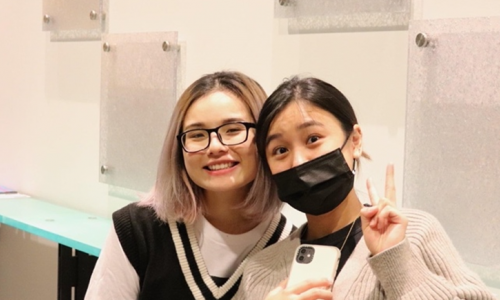
Actuarial positions can be hard to find in the real world, especially as a student. The competition is heavy. There's a lot of talk about people losing jobs, companies cutting back on costs etc. And yet, I landed a position at a mid-level company as a corporate actuarial intern for my first Co-op work term.
Right in the offer letter, there were the three dreaded words: Work from Home. The job is in Toronto, and I go to school in Vancouver. I am also home due to the pandemic in Edmonton. I am one hour ahead of Vancouver and two hours behind Toronto. So essentially, what I had just signed up for was figuring out how to manage my time across multiple time zones. On top of that, there was the added anxiety about fitting in with people I've never met in real life and probably will never meet.
Well, I made it and along the way, I’ve learned some important lessons on time management and corporate culture.
I was taking a course during the first half of the semester. Since I go to school in Vancouver, my classes, midterms, even assignments were due an hour behind, but everything I had to do for work was two hours ahead. As you can probably tell, it became pretty difficult to handle living in three time zones: working efficiently to complete tasks for work and finishing assignments ahead of time, so I wasn't staying up late to hand them at 1 am. I realized this was not easy to do, even after I got the hang of it. I did not seem to have the time or energy after work to keep my head up and study. I was losing sleep, which affected my work performance. Being an hour ahead of school gave me an extra hour to finish my work but being two hours behind work lost me sleep and, eventually, productivity. This was not working in my favour, and in return, I was not learning anything at school or work. In such a position, I had to re-evaluate my priorities. In the middle of my semester, I decided to cut my losses and drop the course. It was a difficult choice, seeing as I had finished almost half the course, but it was not worth the exhaustion.
When working full-time, you have to realize an 8-hour day takes up a lot of time you would otherwise utilize differently in school or just at home. That makes it crucial to create schedules and prioritize so you don't fall behind on other hobbies/chores while still maintaining your work ethic. It also really helps to compartmentalize your life. Being outside of such time constraints also helps not to feel so overwhelmed. At school, keeping up with assignments, midterms, etc., was easier to do than with a job where I have to be present for two-thirds of the day. Dropping my course gave me time to study for my second actuarial exam. Because I get to choose my study schedule, I have a lot more agency in my free time to do as I please and still finish what needs to be done. I am also a lot more focused at work without the stress of pending assignments and midterms. Taking ownership of my time helped clear my head and focus on specific tasks at specific portions of my day.
Usually, you would walk over to a coworkers' desk in a typical work setting and start a conversation. Additionally, you could swivel in a chair, ask a quick question, and swivel back to work. In a pandemic with work from home, everyone's desks are in private rooms and through a screen. It is pretty challenging to read a room when you're the only one in it. It is even more challenging to ask for help through text and wait for a response. However, throughout the past year, companies have had to come to terms with routine online communication, navigate the work-from-home situation, and create resources for any interns hired.
I learned that the corporate culture I had found myself in was quite open; they had their banter and especially loved their weekly games. It makes sense if everyone's been there for a while, but it can be daunting for a newbie. I listened and observed how everyone interacted with each other. It was a pleasant surprise to find lots of deep friendships and understanding of one another. And soon enough, I was able to relax (as much as I could as a Co-op student) and give my commentary and quips in conversation. Team meetings and the relaxed atmosphere kept me excited for the next day and motivated me to complete tasks. Learning about other projects on the team also helped me feel like I was part of something bigger. Knowing my work assignments led to large projects being finished, and watching the final result was very satisfying.
Something that did not occur to me before working in a corporate setting was email etiquette. Emails are fundamental ways of communicating, especially when delegating tasks and updating managers on projects. I do not know how or why, but I am terrified of writing emails. There is a formality yet firmness to email-writing that I can't seem to grasp. Sometimes my manager had to tell me how to form my emails explicitly. Other times, I would wing it, and given no response to correct myself, I would revel in the joy that I communicated like an adult. My strategy became to read the email as if someone sent it to me. If I did not have any visceral reactions to it, I assumed it would not be too much of a problem for others. Communicating through email is essential, especially when finishing large tasks requiring collaboration or approval from management. Email etiquette is also something not a lot of us are taught explicitly in school and having to learn that on the job will be a great help in my personal life and professional development.
It is intimidating going into a work environment about which you know nothing. It is even more intimidating doing it halfway across the country from home. The circumstances taught me that I am capable of doing anything I set my mind to. It’s a cliche, yes, but an important lesson nonetheless. I put my mind to do my best in this role and absorb as much as possible about the industry. I achieved these goals and came out much more confident in not only my actuarial abilities but also my time management and social skills.
















